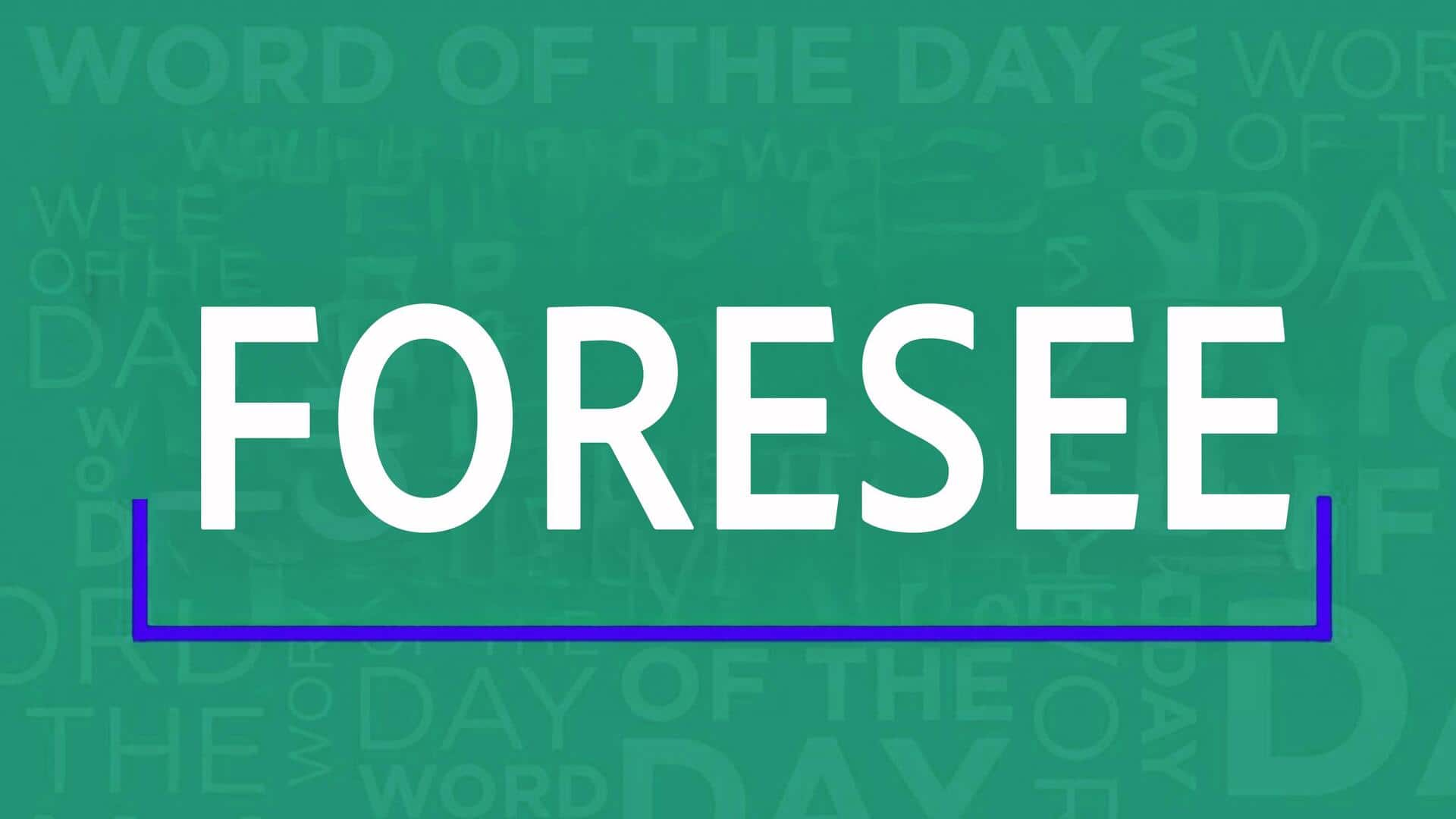
Word of the Day: Foresee
What's the story
The word "foresee" is a verb that means to predict or anticipate something before it happens.
It's commonly used when talking about preparing for future events or outcomes.
Whether in planning, decision-making, or storytelling, "foresee" expresses the ability to look ahead and expect what's coming.
Origin
Origin of the word
The word "foresee" comes from the Old English roots "fore-" meaning "before," and "see," which is self-explanatory.
Together, they form a verb that literally means "to see beforehand."
Over centuries, this word evolved in spelling and usage but has always been linked with prediction and insight into the future.
Synonyms
Synonyms for 'foresee'
Some common synonyms for "foresee" include anticipate, predict, expect, project, envision, forecast, foretell, and prophesy.
These words all carry the sense of looking ahead, but "foresee" adds a slight nuance of insight or judgment, especially useful in decision-making or planning.
Usage
Sentence usage
Here are a few examples that show how "foresee" is used in daily language:
"She could 'foresee' the challenges they would face during the project."
"Economists often 'foresee' trends in the market months in advance."
"Nobody could 'foresee' how much technology would change our lives."
Writing
Why use the word
Using "foresee" helps you express future thinking and preparedness with clarity. Instead of saying "know what will happen," this word adds depth and foresight to your message.
It's especially useful in professional, academic, and creative writing when you want to sound thoughtful and forward-looking.